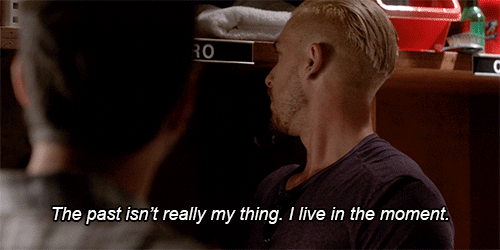In this article, we will explore how to improve self esteem in therapy, offering practical strategies and insights to help you cultivate a healthier sense of self-worth.
Do you ever find yourself doubting your worth, feeling inadequate, or constantly seeking validation from others?
If so, you’re not alone. Many people struggle with low self-esteem, and it can have a profound impact on their overall well-being.
The good news is that therapy can be a powerful tool for building self-esteem and fostering a more positive self-image.

Understanding Self-Esteem
Understanding self-esteem is crucial for our overall well-being, as it directly impacts how we perceive and value ourselves.
Many of us struggle with low self-esteem, often stemming from childhood experiences or negative self-talk.
However, through therapy, we can explore the root causes of our low self-esteem and work towards improving it.
By identifying and challenging negative beliefs about ourselves, we can gradually build a more positive and realistic self-image.

The Role Of Therapy
Therapy offers a safe space to address deep-seated insecurities and develop healthier coping mechanisms.
At the core of improving self-esteem in therapy is learning to be more compassionate towards ourselves.
This involves acknowledging our strengths and achievements while also recognizing that we are worthy of love and respect simply because we exist.
Through therapeutic techniques such as cognitive-behavioral therapy (CBT) or mindfulness practices, individuals can rewire their thought patterns and cultivate a more balanced sense of self-worth.
Understanding self-esteem requires introspection and a willingness to confront internalized negativity.
By actively engaging in the process of improving our self-esteem, we can transform how we view ourselves and navigate the world with greater authenticity and empowerment.

Identifying Negative Thought Patterns
Identifying negative thought patterns is a crucial step in improving self-esteem through therapy.
These thought patterns often manifest as self-criticism, unrealistic expectations, and catastrophic thinking.
By paying close attention to our inner dialogue, we can begin to recognize these harmful patterns and work towards changing them.

A Therapist Can Help
Therapy offers a safe space to explore the roots of these negative thoughts, uncovering underlying beliefs and experiences that contribute to their persistence.
This process not only helps in identifying the triggers for negative thinking but also provides an opportunity for reframing those thoughts with more realistic and positive alternatives.
Furthermore, understanding the connection between emotions and thought patterns can be empowering.
Through therapy, individuals can learn techniques to challenge and restructure negative thoughts, ultimately leading to a more resilient self-esteem and improved mental well-being.
By unraveling these complex layers of negativity, therapy enables individuals to break free from the grip of detrimental thought patterns and cultivate healthier perspectives on themselves and their world.

Building Positive Self-Talk
Building positive self-talk is a crucial cornerstone for improving self-esteem in therapy.
Often, our internal dialogue can be riddled with negativity and self-doubt, which only serves to reinforce low self-worth.
By consciously shifting this dialogue towards more affirming, supportive language, we can rewire our thought patterns and boost our confidence.
One strategy involves practicing daily affirmations that counteract negative beliefs, such as I am capable, I deserve happiness, and I am enough.
Over time, these positive messages become ingrained in the subconscious mind, paving the way for improved self-esteem.

Don’t Be So Hard On Yourself
In therapy, individuals can learn cognitive restructuring techniques to identify distorted thinking patterns and replace them with constructive alternatives.
This process not only cultivates a more balanced view of oneself but also empowers individuals to approach challenges with resilience and optimism.
Ultimately, by fostering a habit of positive internal dialogue through intentional practice in therapy, individuals can transform their self-talk from critical to empowering—a fundamental step towards nurturing healthy self-esteem.

Setting Realistic Goals
Setting realistic goals is a crucial step in the journey of self-improvement, especially when learning how to improve self esteem in therapy.
Many of us are guilty of setting lofty, unattainable goals which can often lead to feelings of disappointment and failure. Instead, breaking down larger objectives into smaller, manageable steps can build a sense of achievement and momentum.
By acknowledging our limitations and focusing on what we can control, we set ourselves up for success.

Track Your Progress And Count Milestones
Moreover, it is essential to reassess and adjust our goals as needed. Life is dynamic and constantly changing, so it’s important for our goals to adapt accordingly.
This flexibility not only helps us stay on track but also fosters a positive mindset by allowing us to acknowledge progress along the way.
Ultimately, setting realistic goals is about being kind to ourselves while striving for improvement – a balance that is fundamental in the journey towards building self-esteem through therapy.

Exploring Past Experiences
Exploring past experiences can be a powerful tool for improving self-esteem in therapy.
By delving into our past, we can uncover the roots of our insecurities and negative beliefs about ourselves.
Through this exploration, we gain a deeper understanding of how our past experiences have shaped our current self-perception.
This awareness allows us to challenge and reframe those negative beliefs, ultimately leading to improved self-esteem.

You Don’t Have To Go It Alone
Therapy provides a safe space to navigate through these past experiences with the guidance of a professional.
By examining patterns and themes from the past, individuals can identify how their previous encounters have influenced their sense of worth.
Moreover, the process of exploring one’s history often unveils resilience and strength that may have been overlooked or forgotten.
Understanding and acknowledging these aspects can bolster self-esteem by fostering a sense of empowerment and validation from within.
Delving into past experiences within the context of therapy offers an opportunity for personal growth and transformation.
This introspective journey not only uncovers the origins of low self-esteem but also facilitates healing and resilience-building processes.
As individuals unearth new insights about themselves through exploration, they cultivate a more compassionate and confident sense of identity.

Practicing Self-Care Techniques
When it comes to figuring out how to improve self esteem in therapy, incorporating self-care practices can be highly beneficial.
Engaging in activities such as mindfulness meditation, regular exercise, and adequate sleep can help individuals develop a greater sense of self-worth and confidence.
Additionally, practicing gratitude and engaging in hobbies or activities that bring joy can improve one’s outlook on life.

Be Good To Yourself
Furthermore, seeking professional help through therapy or counseling can also aid in discovering out how to improve self esteem in therapy.
Therapists often guide individuals to identify negative thought patterns and provide tools to challenge them effectively.
As part of the therapeutic process, exploring past experiences and learning healthy coping mechanisms can significantly contribute to fostering a positive self-image.
By actively including these personalized techniques into their routine, individuals can experience profound shifts in their perception of themselves and enhance their overall quality of life.
How To Improve Self Esteem In Therapy By Embracing Therapy
Uncovering how to improve self esteem in therapy is a multi-faceted process that requires dedication and commitment from both the therapist and the individual seeking help.
By addressing underlying issues, setting achievable goals, and practicing self-compassion, individuals can begin to build a healthier sense of self-worth.
It is important to recognize that progress may not always be linear and setbacks are a natural part of the journey.
However, with the support of a trained therapist and a willingness to engage in self-reflection, individuals can make meaningful strides toward learning how to improve self esteem in therapy.
If you or someone you know is struggling with low self-esteem, consider reaching out to a qualified therapist to begin the journey toward greater self-confidence and well-being.




























